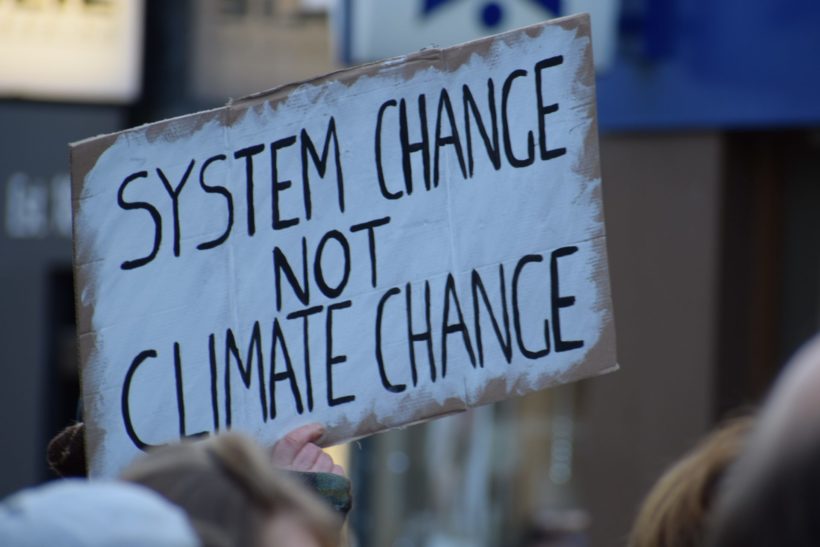When examining the climate crisis-violence nexus, many researchers, journalists, policy analysts, and environmentalists tend to focus exclusively on the potential link between global warming and increasing conflict: Will the world become more violent? Will climate disruption trigger uprisings and exacerbate threats to peace and stability? Are fragile states and the ones to experience the greatest effects from climate crisis more prone to conflict? Although climate crisis -along with other significant factors- will in fact intensify existing social, political, and economic problems and reinforce inequalities, if we really want to address the threat and subsequently achieve climate justice, we should firstly determine its root causes; namely, the structures that (re)produce the conditions that drive to climate crisis.
European Network Against Racism’s recently published report[1] illustrates how racialized and marginalized communities are disproportionately exposed to the effects of climate disruption mainly because of (neo)colonial capitalism, “the ideology and practice of maximizing profits and wealth for a few a top a racial hierarchy, by extracting this wealth from the land, labor, and resources of others; if there is no wealth to extract, communities often undergo forced assimilation, or are completely excluded from the accrued wealth and related services”. For example, indigenous lands of Saami and Inuit people in the Arctic are being exploited because of extractivist projects, that remove large amounts of natural resources for capital gain. In France hazardous sites, like incinerators and waste management facilities, are more likely to be located near towns with higher immigrant populations, whereas communities in the French Caribbean islands of Martinique and Guadeloupe are being exposed to a toxic pesticide named chlordecone, despite being outlawed in the United States and in metropolitan France. Also, Roma communities in Romania are forced to live near landfills, where the air pollution and odor emitted become worse as the environment gets warmer and warmer.
The deep disproportion between the least responsible ones for climate crisis, who will be most heavily afflicted, and, on the other hand, the most responsible ones, whose agency is usually unfettered and who will be better protected, creates a situation of fundamental injustice and a clear case of systemic violence not only on local level, but on a global scale as well.
Historically, the United States[2] has emitted more CO2 than any other country to date: it is responsible for 25% of the global emissions. The 28 countries of the European Union are also a large historical contributor at 22%. Apart from rich and developed countries, other powerful agents, such as major fossil fuel corporations, play a significant role in environmental degradation, from which they disproportionately benefit economically. The fact that communities living near fossil fuel reserves extracted by fossil fuel companies are left deprived of the wealth generated, is being mainly overlooked.
At the same time these companies have gained great political influence, which allows them to oppose to ending fossil fuel dependency, and preserve a business model of only partly restrained fossil fuel extraction and combustion. In the first quarter of 2022, Occidental Petroleum, Exxon Mobil, and Koch Industries spent more than $12.4 million on lobbying[3] US Congress -about $1 million more than they spent by this time in 2021- as Russia’s invasion of Ukraine has altered the balances of the global energy market.
The prevailing legal, political, and economic structures provide a fertile ground for oil, gas, and coal corporations’ practices to bloom. Climate crisis is evolving as a critical feature of the aforementioned structures, which perpetuate violence, is worsening the already existing inequalities, and is creating new forms of oppression. To give a broader picture of how we might look at the connection between structural violence and environmental degradation, the latter can be indeed characterized as a form of the former. Claiming that climate crisis will potentially cause violence would be simply disorientating. Climate crisis is itself violence and, therefore, we shouldn’t focus exclusively on its final impact, but understand the historical background of the system and the institutions that lie at the root of climate disruption.
Therefore, although we are trying to find our way towards true climate justice, there are no simple fixes. It is timely that we bring a debate of power, racism, and inequality (including social, economic, racial, and gender inequality) into the center of the climate justice movement and draw a connection between institutionalized violence and climate crisis by bringing visibility to the ones that are and will be most affected; climate talks with adequate representation from racialized communities are more than essential. Overall, decolonized and anti-racist climate action is needed, in order to address climate crisis in dimensions beyond strictly environmental.
[1]https://www.enar-eu.org/racialised-communities-in-europe-hit-hardest-by-the-climate-crisis-new-enar-report/
[2]https://ourworldindata.org/contributed-most-global-co2






